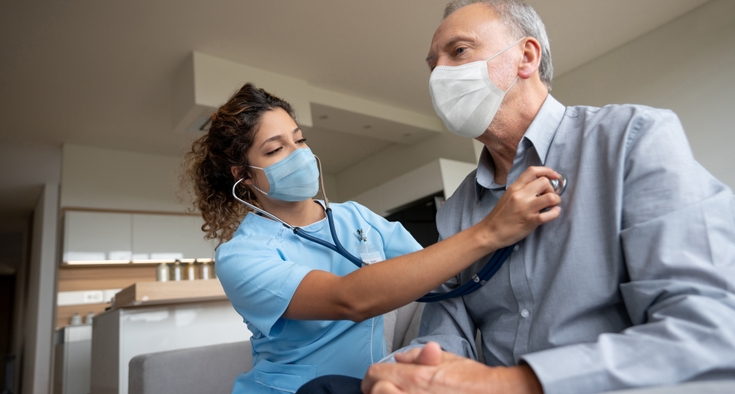The statistics from early summer 2020 were puzzling to Dr. Kobina Wilmot, a cardiologist at Novant Health Heart & Vascular Institute - Salisbury.
The number of patients being hospitalized for heart care was decreasing. But, people dying at home because of heart issues was on the rise. The connection? People having heart problems were delaying treatment for fear of contracting COVID-19 at a hospital.

Wilmot saw the danger firsthand. That delay often meant the patient’s problem had intensified, making treatment and recovery more difficult.
“We have saved some people who have delayed care,” he said. “But, we've definitely seen some bad outcomes. Delaying really affected their treatment, their recovery and ultimately their survival.”
That fear waned a bit as the summer went on, Wilmot said, but he is seeing it rise again this winter as the number of COVID-19 patients in hospitals is soaring. Some patients remain wary of an emergency room visit.
“Even trying to do procedures in an outpatient setting, people ask `Do I have to go? Is it a hospital?’” Wilmot said. “We have to remind people that the patients who have COVID-19 are segregated in a safe place. We’re not going to put heart patients directly next to that location. It’s safe for you.
“Now that hospitals are getting full, we keep reminding patients that in the hospital, we're doing all the safety precautions recommended by the Centers for Disease Control and Prevention. We have full face shields. We are cleaning everything thoroughly. There are a lot less people getting viruses in the hospital than in the community, where there is not as much consistency with wearing masks.”
Delaying heart care can mean a worse outcome, even permanent disability or death. Everyone at Novant Health has been properly trained and has all the necessary protective equipment to prevent patients and staff members from contracting and spreading COVID-19. Novant Health carefully screens all patients and has multiple protocols in place to keep them safe.
Find the heart care you need
Novant Health ERs have separate waiting areas for COVID-19 patients and separate treatment rooms. Remember, the vast majority of hospital patients are not there for COVID-19 treatment.
Providers also are offering patients the ability to do virtual visits in nonemergency situations.
“Your doctor’s office is still safe and the hospital is safe,” Wilmot said. “We don't want you to have a problem there. The best reminder is that the No. 1 killer in America this year, despite COVID-19 with more than 300,000 deaths, is heart disease.” About 655,000 Americans die from heart disease each year, according to the American Heart Association. “Heart disease is an important thing that we need to deal with,” he said.
Are you having a heart attack?
The major symptoms of a heart attack are:
- Chest pain or discomfort.
- Feeling weak, light-headed or faint.
- Pain or discomfort in your jaw, neck or back.
- Pain or discomfort in one or both arms or shoulders.
- Shortness of breath.
Other symptoms of a heart attack could include unusual tiredness and nausea or vomiting. Women are more likely to have these other symptoms.






